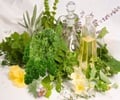Doctors are as poorly informed as they think their patients are on the subject of herbal medicines, indicates a survey of Drug and Therapeutic Bulletin (DTB) subscribers.
More than 80% of respondents to the survey were doctors, of whom the largest proportion were family doctors. Pharmacists made up the bulk of the remainder.The findings show that more than seven out of 10 respondents think that the public has misplaced faith in the power of herbal medicines.
And more than 85% believe that the public is “poorly informed” on the subject. Not one respondent considered the public to be well informed.
But healthcare professionals rated themselves little better. When asked how well informed doctors are on the subject, three out of four respondents said they were “poorly informed.” Just one in five (21.5%) thought doctors were “moderately well informed.”
Almost half of respondents (48%) described their current knowledge and understanding of herbal medicines as either “quite poor” or “very poor.”
And nine out of 10 admitted that their knowledge of herbal medicines was “much poorer” than their knowledge of prescription medicines.
Advertisement
By far the greatest reason for doing so (just under 96%) was because of concerns over potential interactions between the two forms of treatment. Two thirds (just under 69%) worried they might miss a side effect if they did not find out more.
Advertisement
A significant proportion of respondents (77%) worried that their patients would take herbal medicines and not tell them. But despite these concerns, few make a point of asking patients themselves.
Only one in eight (13%) “always” asked their patient if s/he was taking herbal medicines when reviewing or planning prescription drug treatment. More than half (55%) either “never” asked or did so only “occasionally.”
Knowledge of the regulatory arrangements for herbal medicines was also thin.
Only 3% of respondents said they knew “a great deal” about this area, yet almost 85% considered that herbal medicines are not well regulated.
Commenting on the findings, DTB editor, Dr Ike Iheanacho said: “It’s obviously worrying that doctors in general seem to know so little about herbal medicines, given the widespread use of such products.”
An Ipsos-MORI survey carried out for the drugs regulator the Medicines and Healthcare products Regulatory Agency (MHRA) in 2008 revealed that more than one in three people surveyed (35%) had used a herbal medicine; one in four (26%) had used one within the past two years.
“The fact that few doctors make a point of asking patients whether they are taking herbal medicines raises further safety concerns,” he added. “Similarly unsettling is that even when doctors don’t know the effects of a herbal medicine a patient is taking, many won’t try and look these up,” he said.
In an accompanying DTB podcast, Michael McIntyre, who chairs the European Herbal Practitioners Association and is a member of the UK Department of Health Herbal Medicine Regulatory Working Group, put this down to doctors’ belief that familiarisation with herbs is somehow a retrograde step.
Before the advent of modern medicine, ailments were often treated with herbs, he said, suggesting that doctors feared being “pulled back into the swamp.”
Dr Linda Anderson, Principal Pharmaceutical Assessor at the MHRA said in the podcast that the Agency’s research indicated that patients were prepared to tell their doctors if they were taking herbal medicines and expected them to be knowledgeable about these products.
Source-BMJ
SRM















